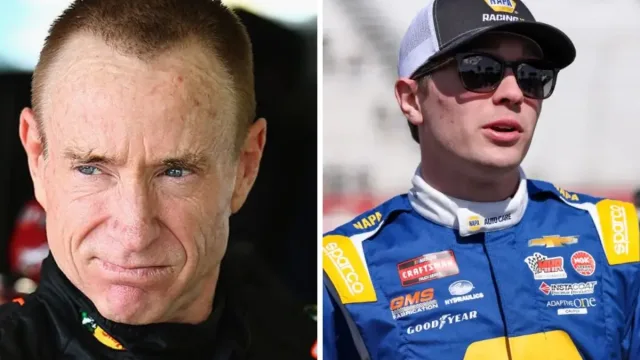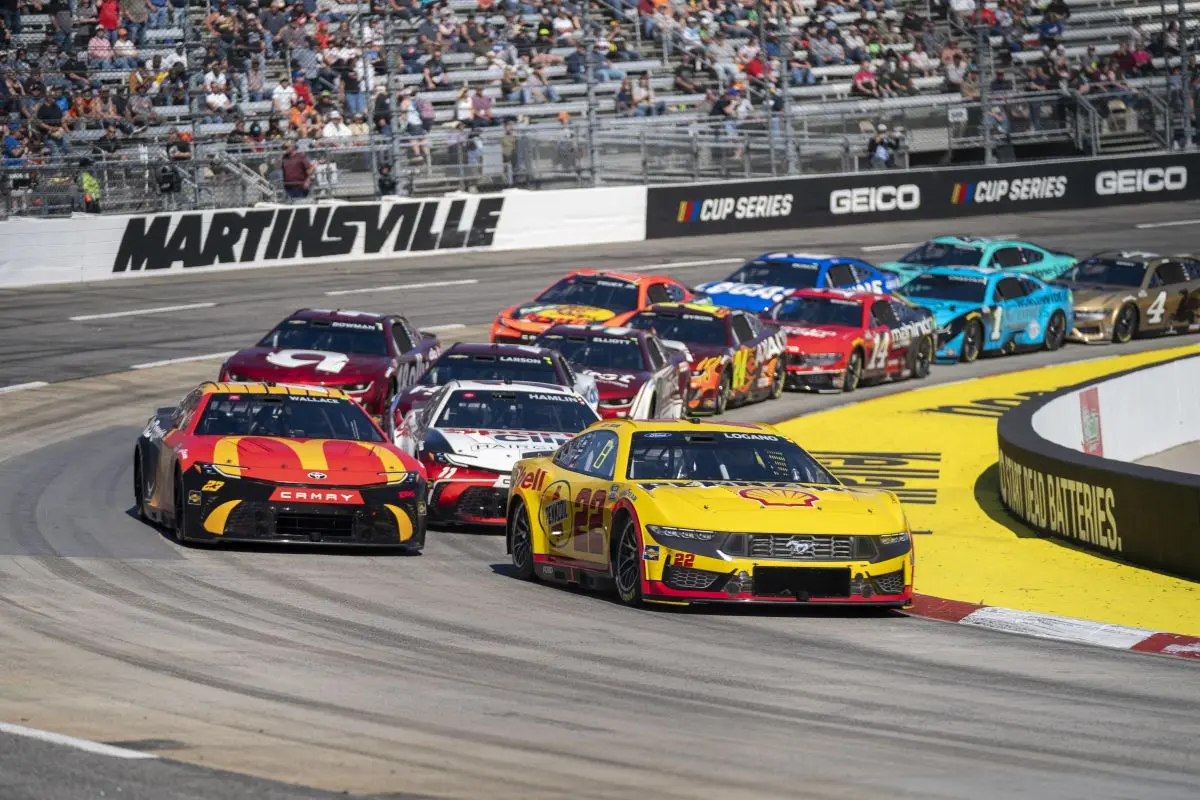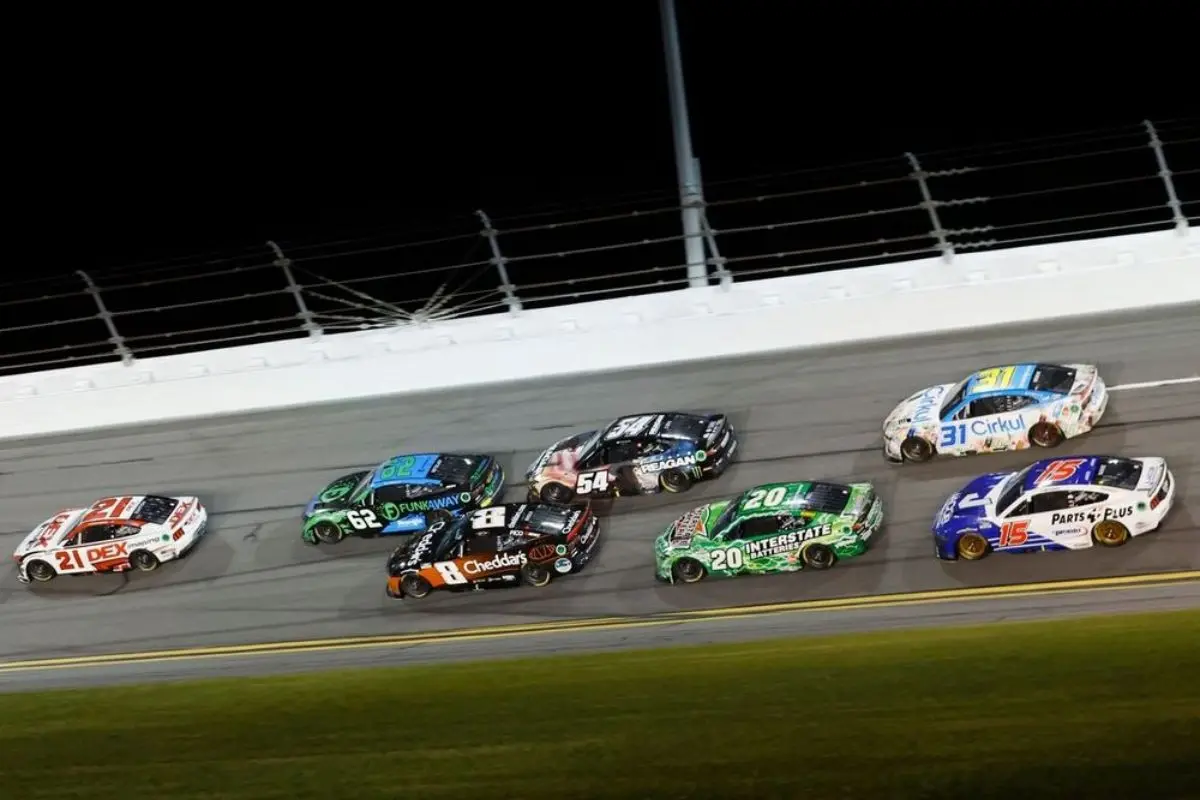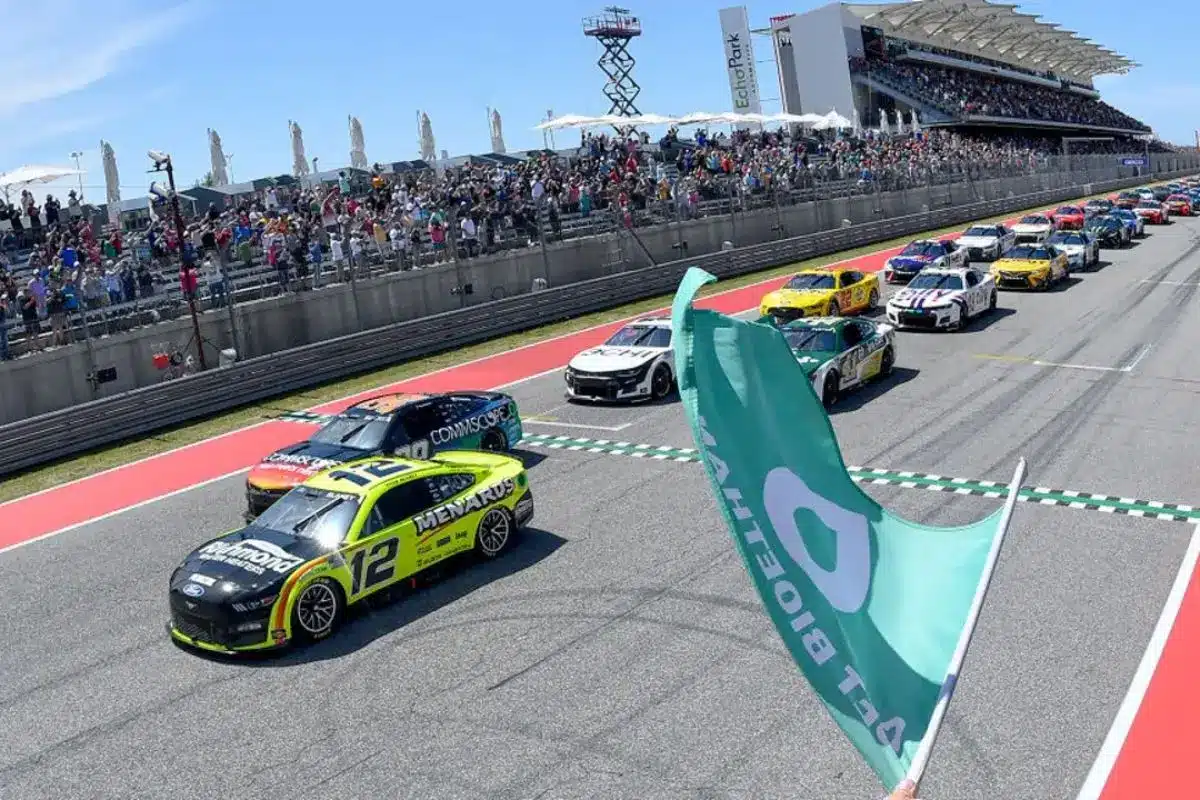In the heat of NASCAR racing, decisions can change everything. Recently, Mark Martin rips Christian Eckes‘s daring move that destroyed a rival’s NASCAR championship at the Martinsville. This bold tactic sparked major debates about sportsmanship and what it takes to win. NASCAR Fans are left wondering: Was it worth it? As tensions rise and rivalries heat up, the racing world is on edge.
Key Highlights
- Mark Martin criticized Christian Eckes’s aggressive tactics during the Martinsville race, highlighting the ethical implications of his actions on rival drivers’ NASCAR championship hopes.
- Eckes’s body-slam of Taylor Gray not only ended Gray’s title aspirations but also sparked outrage over sportsmanship in NASCAR.
- Martin emphasized the need for accountability in racing, suggesting stricter penalties to discourage unsportsmanlike conduct like Eckes’s maneuver.
- The aftermath of the incident has intensified rivalries, with Gray vowing revenge and increasing tensions among competitors in the NASCAR community.
- Discussions surrounding racing ethics and the balance between ambition and fair play have been reignited, reflecting concerns over the integrity of the sport.
The Competitive Landscape of NASCAR
Navigating the competitive landscape of NASCAR demands not only skill but also a keen understanding of the intricate dynamics that define the sport. As the stakes heighten, particularly during critical races like the recent 2024 Zip Buy Now, Pay Later 200 at Martinsville Speedway, the tension between aggressive tactics and sportsmanship becomes increasingly pronounced.
The need to secure a position in the NASCAR Championship 4 intensifies the strain on drivers, prompting decisions that can leave a lasting impact on both individual careers and the broader racing community. In this context, the “win at all costs” mentality has emerged as a double-edged sword.
While it drives competitors to push their limits, it can also lead to contentious actions that alienate fans and fellow drivers. The controversial action executed by Christian Eckes, which compromised the NASCAR championship hopes of his rivals, exemplifies the delicate balance that must be maintained in competitive racing.
Enthusiasts expect thrilling, high-stakes action; yet, when such actions come at the expense of others, the integrity of the sport is called into question. Navigating this landscape requires not only a mastery of on-track skill but also an acute awareness of how tactical decisions resonate within the larger framework of NASCAR.
As drivers weigh their ambitions against the repercussions of their actions, the evolving competitive ethos of the sport will continue to shape its future, emphasizing the importance of not just winning, but winning with honor.
Mark Martin Voices Discontent
The recent controversies surrounding aggressive driving tactics have sparked substantial backlash within the NASCAR community, leading notable figures to voice their concerns. Among the most vocal is retired driver Mark Martin, who has expressed his disillusionment with the current state of stock car racing.
At 65, Martin’s extensive experience in the sport grants him a unique perspective, and he has used social media to question the integrity of contemporary drivers.
Martin’s critique centers on the perceived lack of accountability that exists in NASCAR, particularly regarding on-track incidents that can dramatically impact not just individual races but entire NASCAR championships. He argues that aggressive maneuvers, such as the one executed by Christian Eckes that cost a rival valuable points, reflect a troubling trend that prioritizes short-term gains over the long-term integrity of racing.
In his posts, Martin emphasizes that the essence of racing lies in skill and strategy, rather than reckless risk-taking. He urges the governing bodies of NASCAR to impose stricter penalties to deter such aggressive strategies, reinforcing the need for a culture of accountability.
Ethics are gone in racing.
— Mark Martin (@markmartin) November 2, 2024
As the NASCAR community grapples with these issues, Martin’s voice serves as a clarion call for reflection and reform, urging both drivers and officials to prioritize the integrity of the sport above all else.
Tension at Martinsville Speedway
Amid the electric atmosphere at Martinsville Speedway, the stakes could not have been higher as drivers prepared for the final playoff race of the NASCAR Truck Series season. With Grant Enfinger already secure in the NASCAR Championship 4 following his victory at Homestead-Mi, the intensity intensified for the remaining contenders. The historic short track, known as ‘The Paperclip’, served as the battleground for drivers vying for the coveted three remaining spots in the NASCAR championship chase.
As the race unfolded, the tension was palpable, with each driver acutely aware that any mistake could spell disaster for their title hopes. The 200-lap race demanded precision and resolve, as competitors navigated the tight confines of the track while jockeying for position. The stakes were monumental, leading to an environment where every move was scrutinized, and every decision carried the weight of potential glory or heartbreak.
In this critical moment of the season, the combination of high tension and fierce competition set the stage for potential fireworks. As drivers pushed their limits, the specter of risk loomed large, amplifying the stakes and igniting fierce rivalries that would echo throughout the race. The drivers were not just racing for victory but for their dreams, making Martinsville a true crucible of motorsport.
Controversial Moves by Christian Eckes
Christian Eckes’s aggressive tactics during the closing laps of the Martinsville race have drawn considerable scrutiny, particularly from veteran driver Mark Martin. Eckes, who had previously dominated the race by winning the opening two stages, found himself in a heated battle with Taylor Gray, who was benefiting from fresher tires.
Despite not being in a must-win situation, Eckes’s decision to body-slam Gray’s No. 17 toyota/”>Toyota was a bold action that ultimately ended Gray’s NASCAR championship hopes.
This incident raises important questions about racing ethics and the lengths drivers are willing to go to secure victory. Eckes’s move, while tactically aimed at reclaiming his position, has been interpreted by many as a reckless disregard for the competition and the implications of his actions.
“I couldn’t lose there, the truck was so good that I wasn’t gonna let these guys down. He (Gray) had a tire advantage, obviously, and that was the reason that he was there. Like I said I wasn’t gonna lose because that’s not what this team deserves. Definitely some pissed-off people after today, but at the same time you know, just happy to be in the Victory Lane, and hopefully they understand that it’s just Martinsville here sooner or later.” – Christian Eckes
In racing, the fine line between aggressive competition and unsportsmanlike conduct is often blurred, but Eckes’s approach during these critical moments has sparked debate. The implications of such moves extend beyond the track; they challenge the integrity of the sport and set a precedent for future races.
As the racing community reflects on Eckes’s tactics, it becomes evident that the conversation surrounding tactics, ethics, and rivalry will continue to evolve, highlighting the complexities inherent in high-stakes motorsport.
The Aftermath of the Race
Following the tumultuous Martinsville race, the repercussions of Christian Eckes’s controversial tactic reverberated throughout the paddock. Taylor Gray, a young driver with NASCAR championship aspirations, was left to grapple with the fallout of Eckes’s aggressive strategy. His fourth-place finish, while commendable, was a bitter pill to swallow, as it effectively extinguished his title hopes.
“Don’t fu-king ship me into the fu-king fence. Race me like I fu-king did to you.” – Taylor Gray
The emotional toll was evident; Gray’s post-race frustration culminated in a confrontation with Eckes during the cooldown lap, signaling that this rivalry is far from over.
The aftermath of the race can be distilled into three critical observations:
- Rivalry Intensified: Gray’s vow for revenge emphasizes the escalating tensions between him and Eckes. “What comes around goes around,” he stated, foreshadowing an intense season ahead as they will race against each other next year.
- Ethical Dilemmas: Eckes’s decision to push Gray with mere laps remaining raises questions about sportsmanship and the ethics of racing. While aggressiveness can be celebrated, the line between competitive spirit and recklessness is becoming increasingly blurred.
- Broader Implications: The repercussions of such actions extend beyond individual rivalries. The incident has reignited discussions around racecraft ethics in the NASCAR community, urging drivers to reconsider their strategies as the stakes grow ever higher.
News in Brief: Mark Martin Rips Christian Eckes’s Daring Move
The incident involving Christian Eckes serves as a clear reminder of the intense competition inherent in NASCAR. The controversial action not only impacted rival NASCAR championship aspirations but also emphasized the delicate balance between aggression and strategy on the track.
Mark Martin’s vocal criticism highlights the broader implications of such actions within the sport, illustrating the potential for lasting repercussions in the pursuit of victory. Ultimately, this event may catalyze further discussions regarding sportsmanship and competitive ethics in racing.
ALSO READ: Christian Eckes’ Milwaukee Mile Disappointment: Top-3 Finish Falls Short of High Hopes



